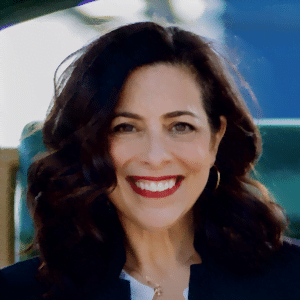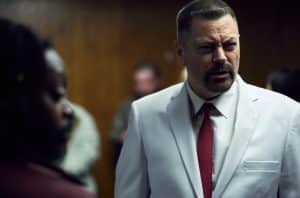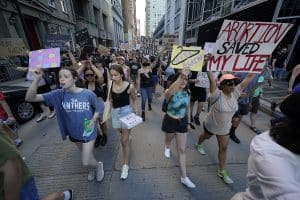At Wednesday’s Central Bucks School District policy committee meeting, a community member made a public comment about the old school board’s (controversial) Policy 321, “Partisan, Political, or Social Policy Advocacy Activities.”
When this policy was revised by the previous Republican board-majority, many felt that it was vague and relied on overbroad terms like “partisan, political, or social policy issues or matters”. The way it was written was built on the assumption that teachers were indoctrinating students. Indoctrination is the process of repeating an idea or belief and expecting others to accept it without criticism or question. Certainly, a teacher who expresses an opinion does not rise to the level of indoctrination. And, this was done in the name of “neutrality” when, in fact, the policy was not neutral at all. The policy privileged certain identities while silencing others – some might argue that systematically erasing certain identities and making teachers fearful of presenting multiple perspectives on issues could result in indoctrination – the opposite of what teachers are actually trained to do.
The commenter wondered what kind of guidance and education is required for teachers to learn how to facilitate conversations. She said that we have great teachers, but that filtering out one’s personal views is not a natural skill. It made me realize that I took for granted that people understood that teachers take many classes that teach them how to teach.
I am going to share a bit about the kinds of training that all teachers have as well as the opportunities for professional development and resources available to in-service teachers.
Let’s start with Big Ideas and Essential Questions.
For many years now teacher education programs have been touting the importance of engaging students’ curiosity and supporting their ability to practice higher order thinking by anchoring instruction in open ended questions that do not have a single or clear answer. The example I often give my future teachers to teach about the idea of essential questions is, “What is a healthy diet?”. This is a question for which people will argue incessantly – high protein, low carb, vegan, vegetarian, pescetarian, low fat, etc. Because there is not a clear answer and it is a topic of high interest, it can be a great jumping off point to engage in research, debate, using evidence, making arguments, and learning.
READ: 3-2-1 Protest: Central Bucks Community Demonstrates Against Education Gag Policy
To be sure, there are topics with a lot more heft than how one chooses to eat. A timely example of this is the war between Israel and Palestine. One of the best lessons I have ever seen is one in which the essential question wonders if the 1948 creation of the state of Israel led to independence or catastrophe. In this lesson, teacher Samia Shoman aims to teach about Palestine from multiple perspectives.
Teaching controversial issues can be daunting and many teachers are reluctant to do so. Sometimes they are reluctant because they feel they do not have the background knowledge. We know that many schools are relatively monocultural. The teachers may not have had experiences with learning about controversial issues in their own schooling. And, of course, as we have seen over the past few years, teachers also worry about negative reactions from parents.
Still, I would argue that it is important to teach factual history and to learn to think critically about that history. Neglecting to confront our history leaves us vulnerable to be left with stereotypes and simplistic ideas that exacerbate misunderstandings and divisions.
So let me tell you about this brilliant lesson by Samia Shoman. Her focus is teaching about Palestine from multiple perspectives. But, her framework can be applied to any controversial issue. Shoman first spends time teaching the students about four concepts: Fact, Perspective, Narrative, and Your Truth. They define;
FACT: Information that can be independently verified; data that is generally accepted as reliable.
PERSPECTIVE: A particular attitude toward or way of thinking about something; point of view.
NARRATIVE: The stories we tell and/or believe to explain how a set of facts or events are connected to each other. Our perspective underlies the narratives we tell.
YOUR TRUTH: something every person creates for oneself—an interpretation of facts based on one’s own perspective.
This way of framing requires students to understand that facts and perspectives inform each person’s “narrative.” And, each person’s narrative leads to our personal truths. An individual’s personal truth is based on interpretations of historical events, memories, and personal experience. The purpose of this approach is to give students “a framework from which to understand a conflict, instead of one in which they need to choose sides.”
In 2021, the book Hard Questions: Learning to Teach Controversial Issues explored how teacher preparation programs prepare teachers to include controversial issues in their teaching. The findings from the book noted that in coursework, pre-service teachers were supported in learning a variety of pedagogical approaches to teaching difficult topics. Although educators acknowledged the risks in teaching these topics, they confronted that challenge with skill and were able to “adapt the strategies they learned to fit their teaching contexts and their own identities”
Pre-service teachers learned to be thoughtful when deciding which issues to teach. Topics must be connected to the curriculum, draw from valid sources, and be framed with open ended questions. Teachers learn a wide variety of discussion strategies, approaches to learning, and thinking routines.
Finally, teachers learn and practice the importance of reflection. We all need time to reflect on discussions, debrief, consider if emotional reactions need to be addressed. Both students and teachers can engage in critical self-reflection and processing with one another to gain awareness of biases that might have surfaced or even what they noticed about their ability to manage discussions and whether more support or training is needed.
The fact that great educators recognize when they need more training is an important one. Our administrators and school board must be willing to invest in professional development for teachers. In CBSD just a few years ago, our school board denied professional development to educators seeking to learn more about how to support trans students. It is important to note that educators choose professional development opportunities based on the needs of their students, as well as their ability to identify areas where they would like to strengthen their practice. In CBSD, quite a few people with educational knowledge and expertise sign off on these requests before they reach the school board. When the Board gets a request that was chosen by an educator and approved by multiple other educators, there is likely a very good rationale for the need for that training.
As to anyone in the community who wonders how teachers know how to facilitate discussion, it is because they get direct instruction about how in their teacher preparation program, they get practice and mentorship during their clinical experiences, and then they get more practice and mentorship when they begin their career. And, if they are lucky, they work in a district that values continuous learning and funds additional professional development for their teachers.







